Charlene Bailey vividly remembers the day her son Leo came home from school, his fingers bleeding.
“He’d been biting them quite a bit,” the Ellon mum recalls. “I had to take him to the doctors to get him antibiotics because they were infected.”
It was one of the darkest moments in a period when Leo, who was just seven at the time, struggled with anxiety and low confidence.
Despite performing well at school, newly-formed self-doubts convinced him he wasn’t doing well enough, causing a number of concerning behaviours to emerge.
Along with the nail biting he no longer wanted to go to his taekwondo classes, telling his mum he felt overwhelmed.
He also complained he had no friends, despite the school saying he was popular with his classmates.
“The way he was talking to me, if that was my best friend sitting over a coffee, I’d be like, you sound depressed,” Charlene says. “I was at my wits’ end. I didn’t know where you go to for that.”
What she did was take him to Cara Robins, a hypnotherapist in Ellon. Another mum at Leo’s school told Charlene how much Cara had helped her own child with confidence issues. After consulting with Leo, an appointment was booked.
The impact was almost immediate.
Leo took to Cara from the start. Charlene said: “He went from being a boy who didn’t even want to leave the house to suddenly meeting this stranger who he was dying to go back and see.
“It was just worth everything.”
The worrying rise in anxious children
Not every child will bite their fingers till they bleed, but UK youngsters are more anxious than ever.
NHS data released last month showed that in England in 2023-24, there were 204,526 referrals of children made to mental health services for anxiety.
In 2016, the number of referrals was fewer than 4,000.
Scottish youngsters are faring just as bad. A report last year from Glasgow University in partnership with the World Health Organisation found the lowest levels of confidence among young Scots in 28 years.
Stepping into this new world are hypnotherapists such as Cara who – faced with demand from parents – are increasingly working with children.
“There’s a saying isn’t there,” says Cara, who now works with more children than adults. “You are only as happy as your unhappiest child.”
Why Cara believes hypnotherapy is a good fit for children
Cara says her hypnotherapy sessions have a 90% success rate.
“It works brilliantly with children, because they’ve got great imaginations,” she says. “They respond to hypnotherapy so well because a lot of the time we’re using metaphors and storytelling.”
What hypnotherapists claim to do is to speak directly to a client’s subconscious by stripping away the mind’s protective barriers.
In a typical session, Cara will make her clients as comfortable as possible before bringing them into a meditative state.
This, she explains, allows her to mute anxious thoughts or suggest different pathways in the brain to overcome potential destructive tendencies or habits.
In all, says Cara, the process “helps to give you clarity of things that you weren’t aware”.
‘You just need to be happier’
In Leo’s case, Cara’s job was to coax him out of a mood that had him seeing everything as a negative.
“Everything was so doom and gloom,” mum Charlene says. “Getting him out of bed for anything was really difficult.”
Charlene had already discussed with Leo about seeing Cara and he quickly agreed to it, though not exactly for the reasons Charlene wanted.
“He said he would if it would help him be better at stuff,” Charlene remembers. “And I was like, Well, you don’t need to be better at stuff, you just need to be happier.”
In his first session, Cara read stories to Leo, many of them involving favourite toys.
These storytelling sessions relaxed him to the point that he was in a deeper meditative state.
Charlene says she wouldn’t describe it as a trance, but it allowed Cara to play what Leo called a “magic trick” – through suggestion she was able to change his perception of her pen.
“He swears blind that pen changed color,” Charlene says with a laugh, before adding: “From that moment she got him instantly talking to him, which I haven’t seen. He said he couldn’t wait to go back.”
A more grown-up Leo, but challenges still lie ahead
Leo now has 10 sessions with Cara under his belt, and Charlene couldn’t be happier.
His worries about going to school have gone and he is making new friends.
Charlene also says Leo, who is now eight, talks to her in a more grown-up way and is more capable of expressing how he feels.
“He’s recognising in himself that what is going on in his head is normal for him,” she says with clear relief.
As for his nails, he no longer bites them.
“I actually cut them this week,” Charlene says, “which I haven’t been able to do since he was a toddler.”
The next challenge for Leo is moving up to a new school year.
But she’s confident that with Cara on hand, the new Leo will be able to handle it.
“Leo does not want to leave her so we’re going to continue as long as he needs her,” she says.
“In my eyes, I’ve got a third parent.”
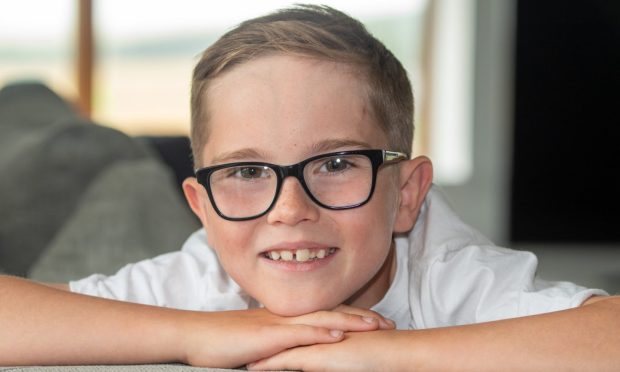
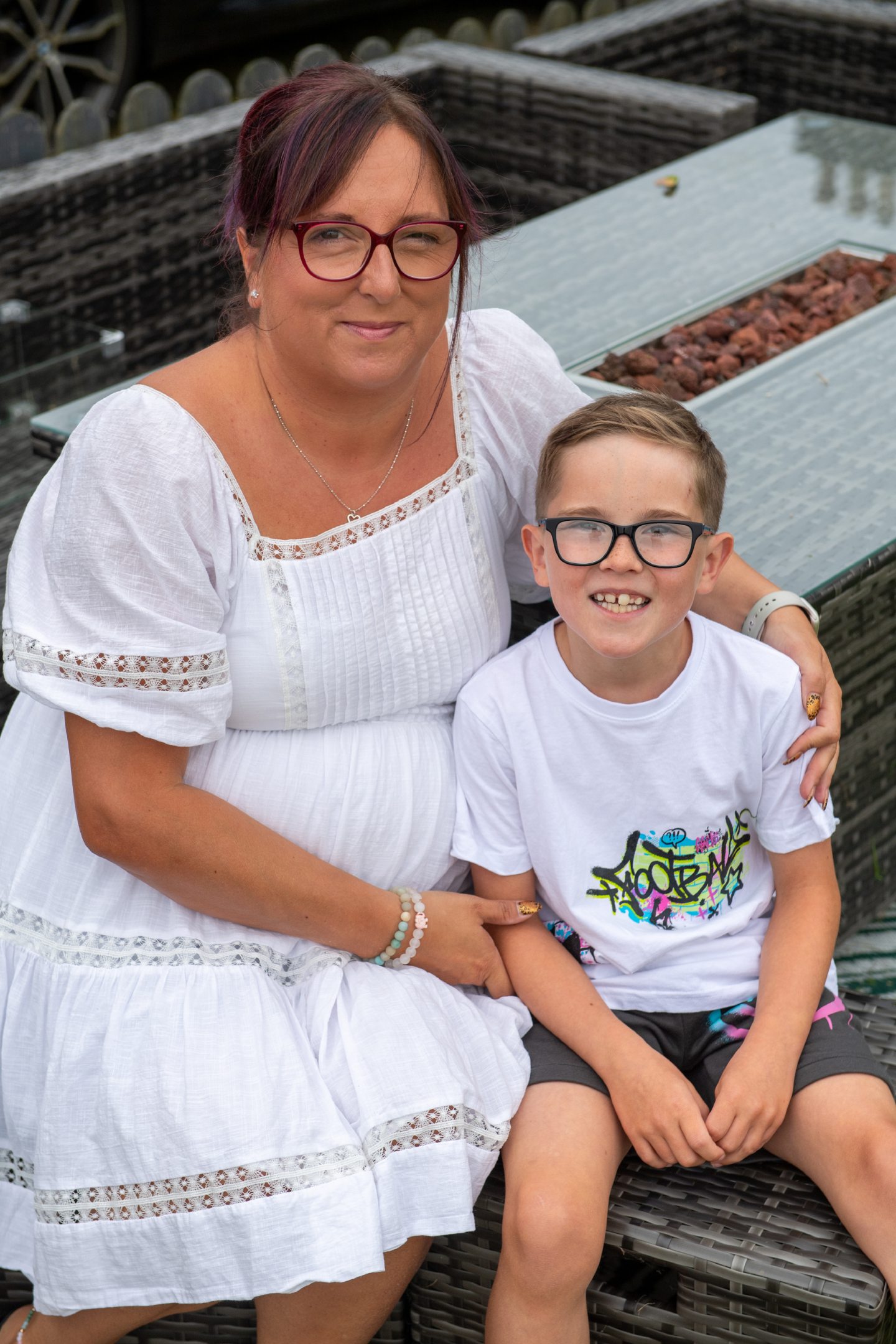
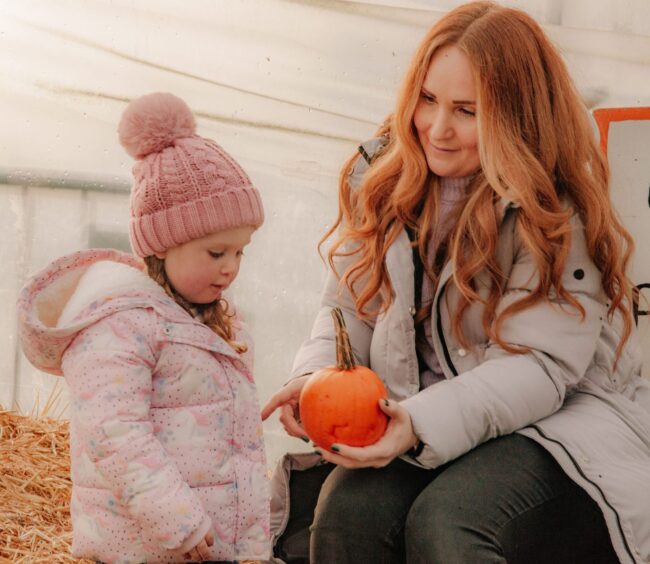
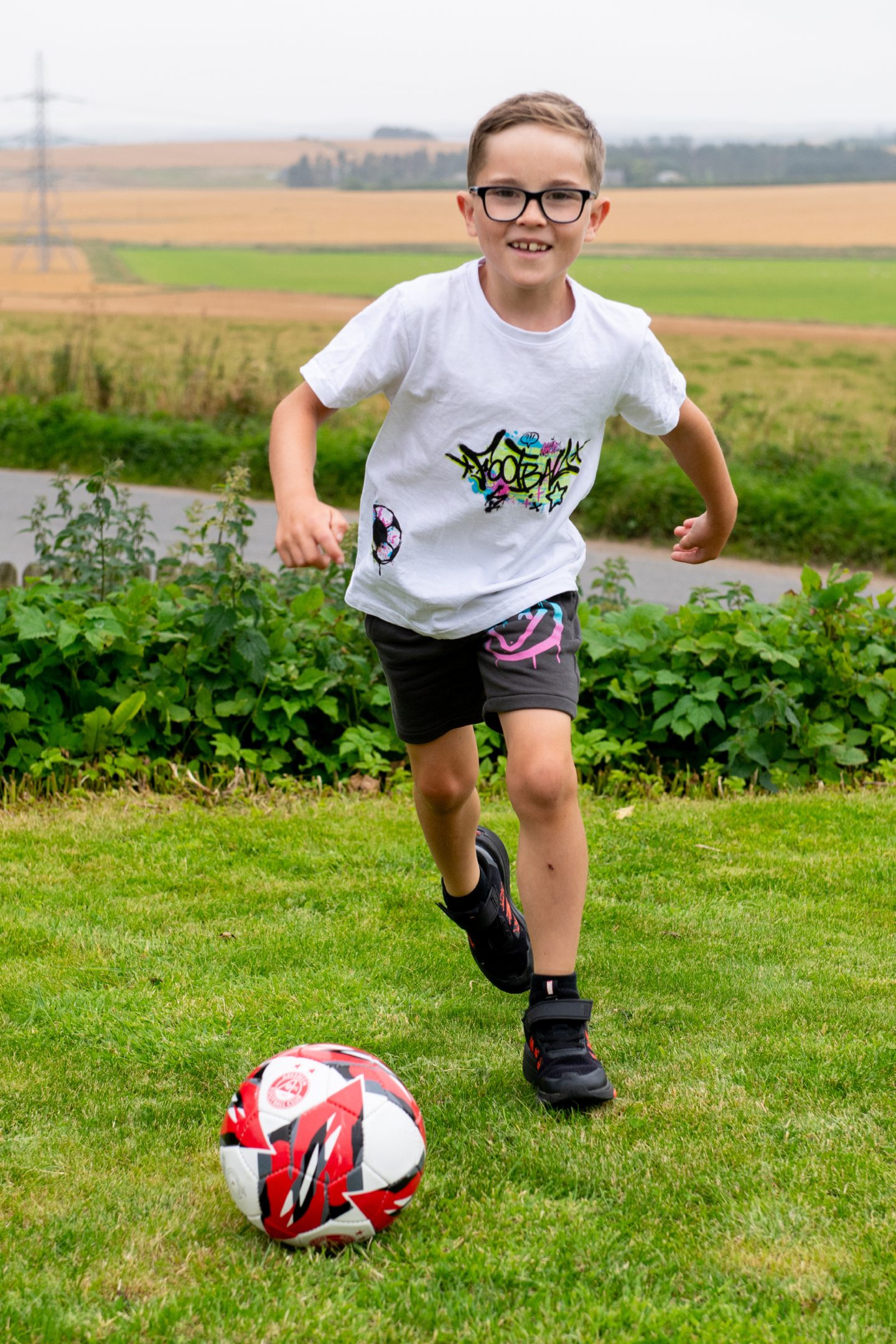
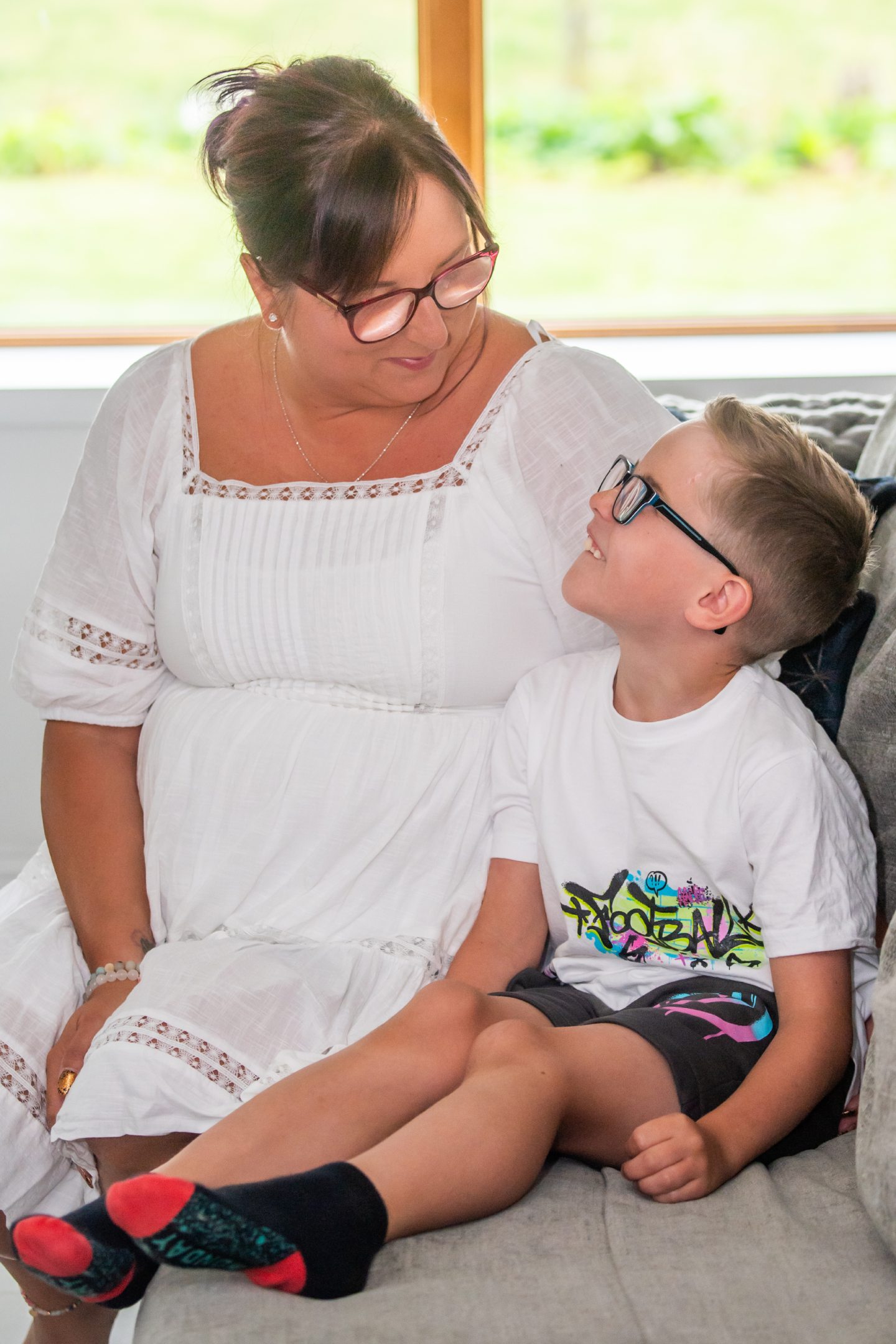
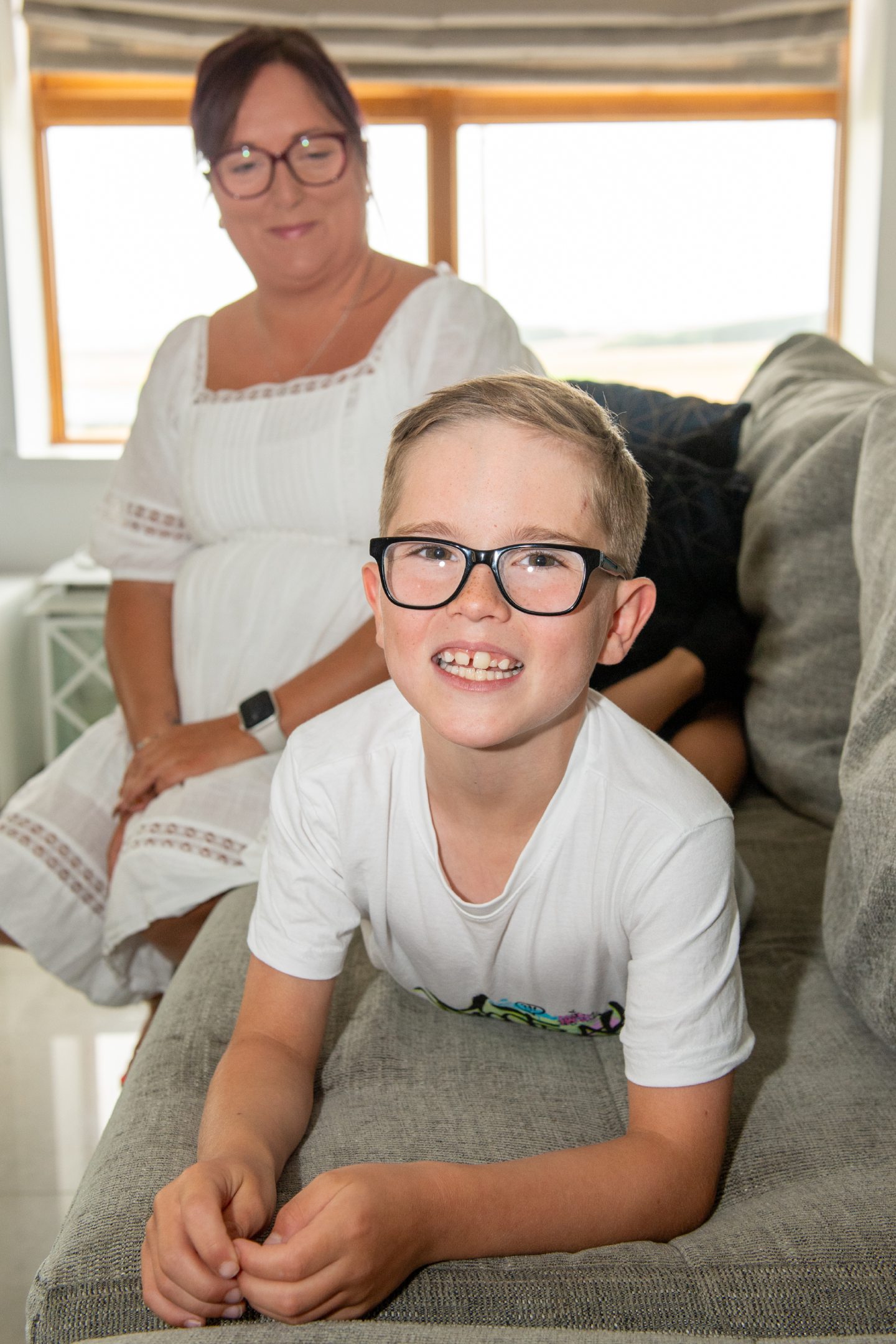
Conversation